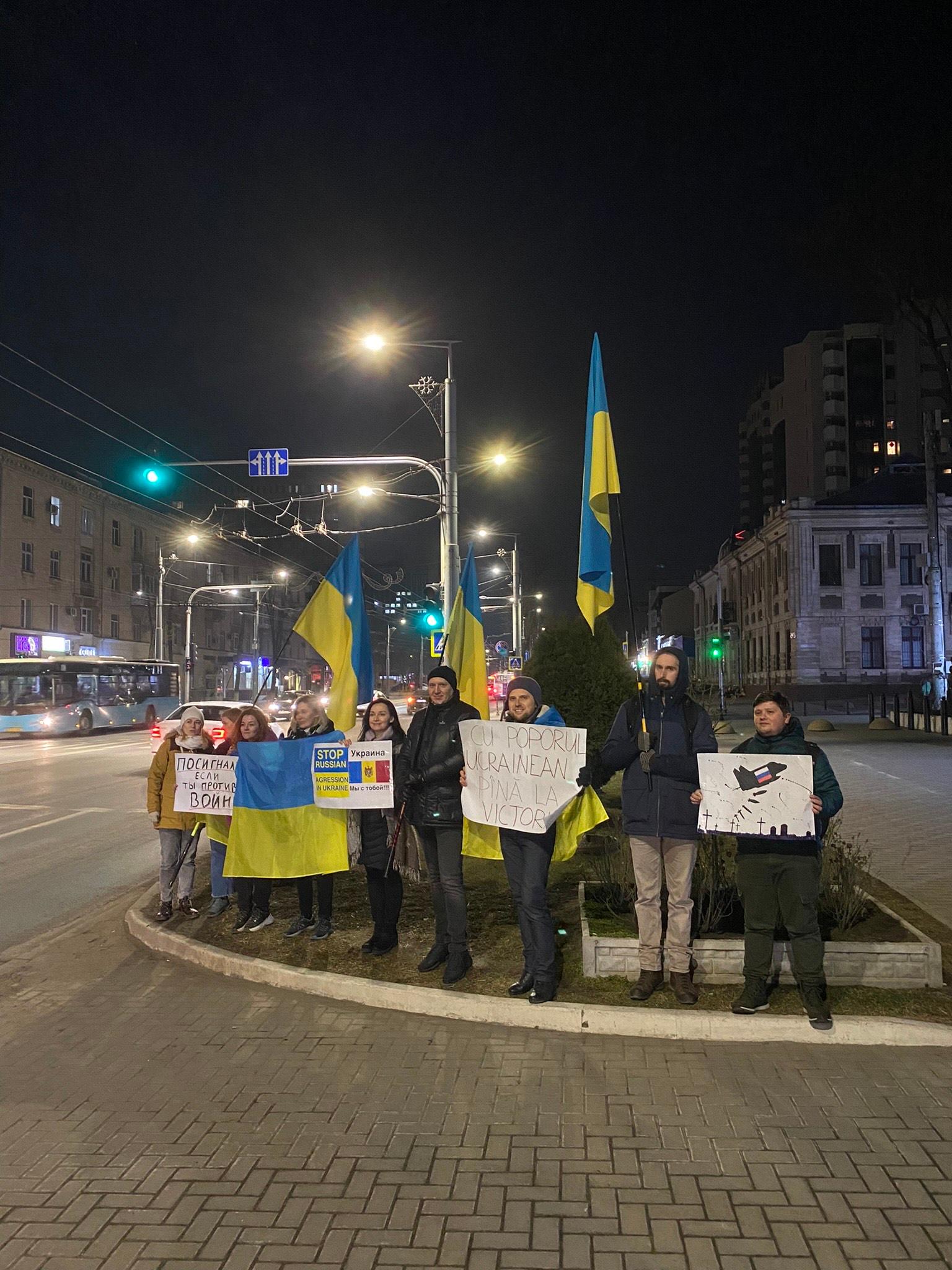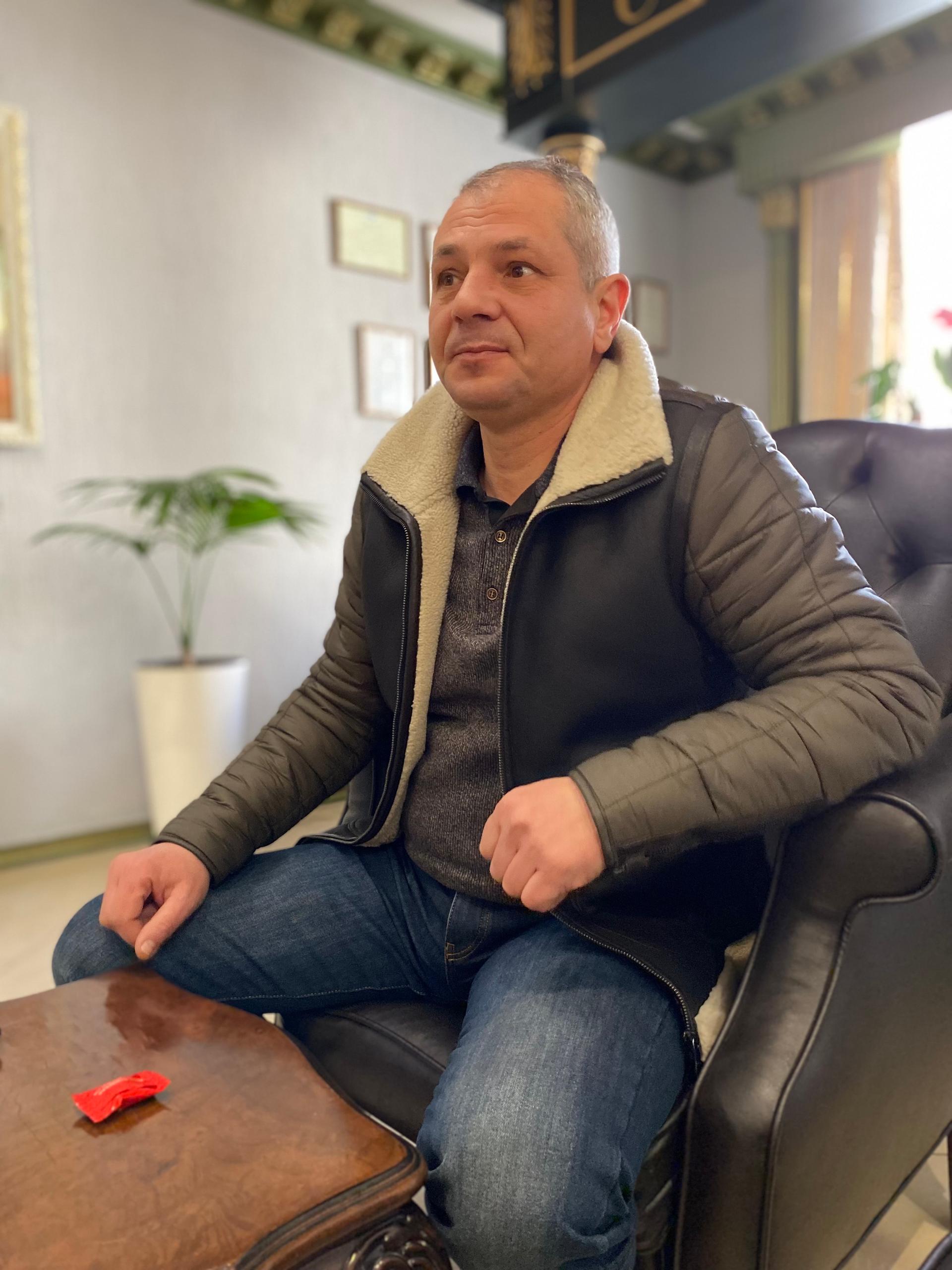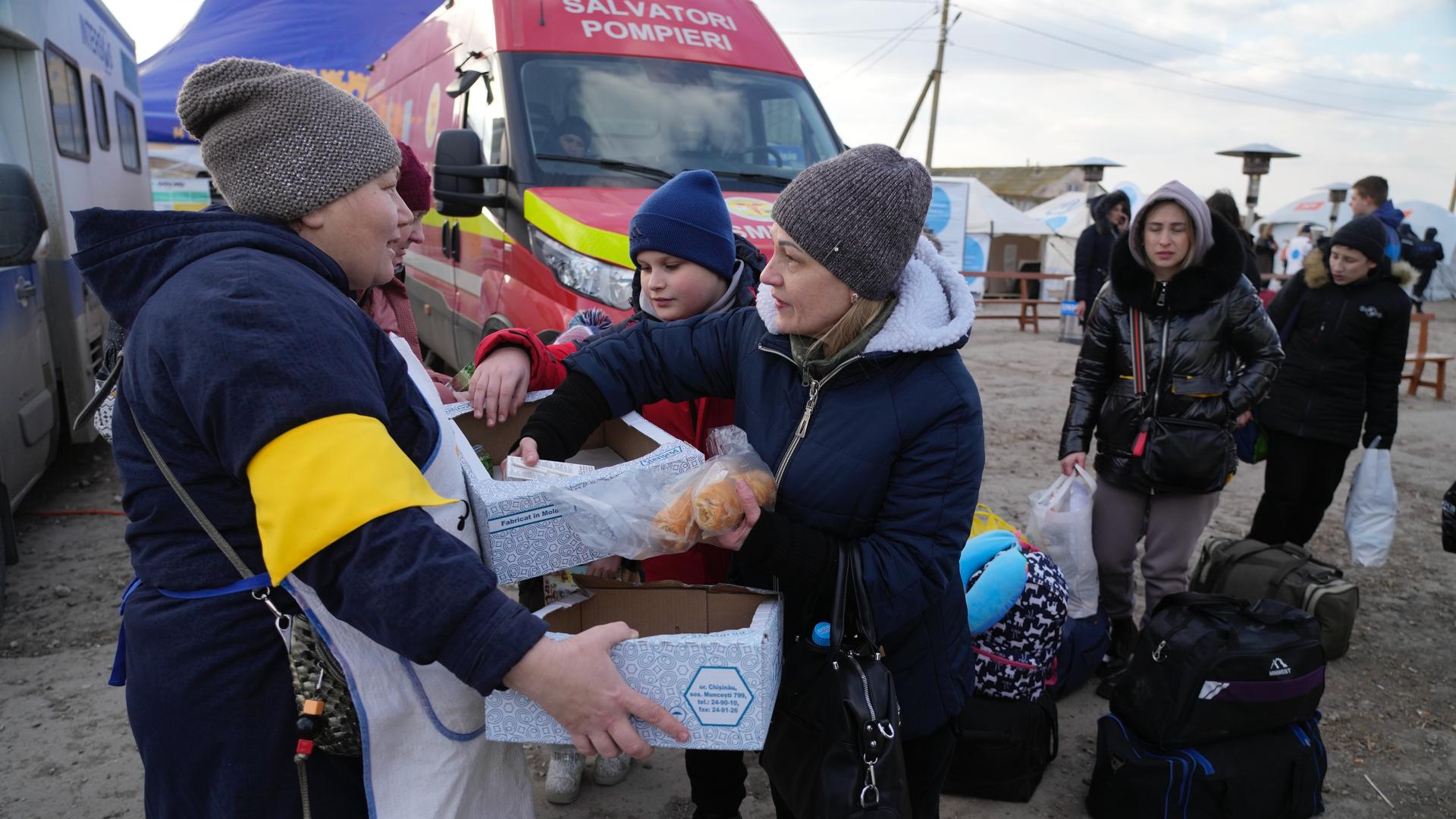For Andrei Grama, the war in Ukraine is not a distant affair.
Grama lives in Moldova, a Western-leaning, former Soviet country slightly larger than Maryland — with a population of around 2.5 million — that borders Ukraine.
In fact, it’s so near that since the invasion of Russian forces next door, the country has kept its airspace closed.
Related: ‘I have a need’: How Zelenskiy’s plea to Congress emphasized shared identity with the US
“The thing that scared me the most that day was when my mum told me that she had heard the bombings,” said Grama, who studies construction at Chisinau’s technical university and hasn’t been back home since the first day of war, Feb. 24.
Grama lives in Chisinau, but his parents live near the Ukrainian border.

“That morning [the first day of war], my dad called me and said, ‘Pack your bag and leave,’” Grama recalled.
Grama spent three weeks staying with family in western Romania — he was avoiding conscription to fight a Russian invasion that, so far, hasn’t happened.
Related: The new Russian diaspora finds a home in Istanbul
Moldova has seen part of its territory occupied by Russian troops since the collapse of the Soviet Union. Now, many Moldovans are wary that they may be Russian President Vladimir Putin’s next target.
Grama, 20, was coming back home on Friday — and to get into the country, he was forced to take a marshrutka, a small bus, bouncing along winding roads from Romania.
But he said that his compatriots are cautious.
“We are in this ready mode, [ready to go in] 20 minutes. If something happens, we’re all out of here. I think we wouldn’t get any help because we’re not a member of NATO. So, who would defend Moldova?” Grama wondered aloud, adding, “Probably nobody.”
On a central boulevard leaving for downtown Chisinau, Anton Matusenco was part of a cohort of a dozen protesting outside the Russian Embassy. One held a sign reading: “Honk if you’re against the war.”
“A lot of people are honking!There’s a lot of waving, thumbs-up, and one lady made a sign to signify she’s crying because of this situation. The response has been overwhelmingly positive.”
“A lot of people are honking!” Matusenco said. “There’s a lot of waving, thumbs-up, and one lady made a sign to signify she’s crying because of this situation. The response has been overwhelmingly positive.”
Matusenco, 35, who was draped in a Ukrainian flag, also left Moldova in the early days of the war.
Related: In Putin’s information war, refugees beg their families to accept reality
“I was absolutely sure that Putin [would] take Odessa and in half a day, [he’d] be here,” he admitted.

Odessa, an important port city in Ukraine that is only a few hours’ drive from Moldova, could be vulnerable to Russian forces by land or sea, according to experts.
But the country is already a potential target for Russian soft power.
The official language of Moldova is Romanian, though most understand Russian and a sizable percentage of the country are native speakers. There have been persistent reports that Moscow has tried to aggravate tensions within Moldova through its media outlets, most recently against its taking in of 350,000 Ukrainian refugees.
“I’m pretty sure that these messages are being paid for and spread by Russian propaganda,” Matusenco said. “It’s super powerful.”
The sounds of explosions and gunfire are now all too common in Ukraine, but 30 years ago it was happening here. Following the collapse of the Soviet Union, the mainly Russian-speaking population of Transnistria — a sliver of land on Moldova’s eastern border with Ukraine — declared independence.
This triggered a five-month war against the central Moldovan government, claiming nearly a thousand lives. A ceasefire was signed in 1992, but a resolution to the conflict has proved elusive.
Radu Prisac was a 21-year-old policeman when he was sent to fight for Moldova. The country’s army had barely been formed and all the tanks and heavy weaponry went back to Russia after the Soviet Union fell, leaving him and his police comrades with only small arms.
Related: Russians in the UK face hate speech, verbal abuse as war rages in Ukraine
Out of his 13-man platoon, only six survived. Three decades on, Prisac still wakes up with nightmares.
“Some Ukrainian politicians have said that now is the time to take back our lands back but that means another war and more death,” Prisac, 51, said. “People lost their homes, families were destroyed, refugees fled. And in the end, we won nothing.”

An estimated 1,500 troops of the 14th Russian army have been stationed in Transnistria since the Soviet days. Moldovans now fear that if Putin’s forces take the strategic Ukrainian port of Odessa, just a two-hour drive from here, they could connect with these units.
“I don’t feel safe,” Prisac said. “I don’t think the Russian army will come here but then I was sure that Russia would never attack Ukraine. I wouldn’t defend Transnistria now if they invaded, but I’m certainly ready to defend my city, my house, and my people. I know my fellow veterans feel the same.”
Some defense analysts have suggested that Russian forces are currently far too engaged across Ukraine to open a new front in Moldova assuming they even want to.
But Moldova is not a member of NATO and joining the EU is still a distant prospect. That may explain why many Moldovans express their wish that Ukraine prevail not just for their sake but for Moldova’s survival.
